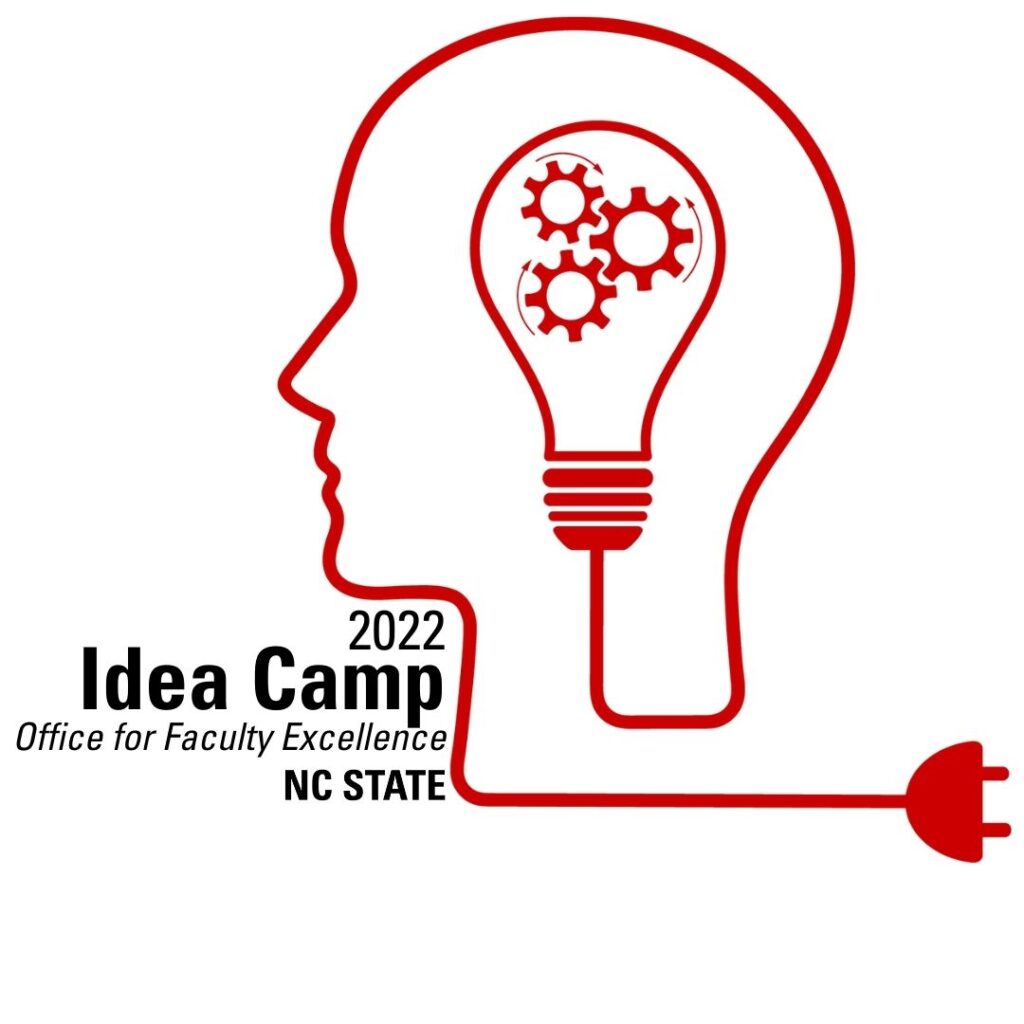
Intro music “Honey” composed by NC State student Johnathan Coquedaire.
By Maria Gallardo-Williams
Podcast (transcript) Week 4 with Dr. Jean Goodwin, SAS Institute Distinguished Professor of Rhetoric & Technical Communication, in the Communication Department at NC State, and member of the Leadership in Public Science cluster.
Welcome to the fourth (and last) week of Idea Camp, and thank you so much for your participation in the first three weeks! We are glad to have you with us, working on the ideas that you generated in Week 1, refined on Week 2, and started planning on Week 3, at your own pace, but as part of this summer professional development community.
It feels to me like this month we have spent together has gone by so fast! A part of me is glad that we are getting to the end of this journey, because that means that your ideas are ready to be implemented, but another part of me is going to miss this community. Your comments and social media posts have meant so much to me, and to my colleagues at OFE!
If you hear this week’s podcast with our guest, the super productive Jean Goodwin, you will realize how much I despise the famous slogan Just Do It! If telling people to just do it actually worked, then mothers all over the world could breathe a collective sigh of relief, knowing that their children will just do what they are supposed to do, since they sure did tell them to just do it. As it turns out, things don’t work that way, and all of us need support, encouragement, and a good dose of organization in order to take our ideas out of the planning stage and into making them a reality.
In that regard, my conversation with Jean was an eye-opener.I started with her suggestion to check out David Allen’s Getting Things Done (which is available on Kindle at the NC State Libraries), which lead me to my new favorite quote:
“You don’t actually do a project; you can only do action steps related to it. When enough of the right action steps have been taken, some situation will have been created that matches your initial picture of the outcome closely enough that you can call it “done.”
― David Allen, Getting Things Done: The Art of Stress-Free Productivity
I think that those words are liberating. You don’t do a whole enormous project. You don’t write a whole dissertation, you don’t create a whole new course, you don’t finish reorganizing a whole program. Not all at once. What you do is you take action steps related to it. Until one day you can call it done. Until one day you stand on the steps of the Memorial Belltower, getting your picture taken because you finished your graduate program – or you get to see it lit bright red because of your amazing accomplishments.
We should remember that, in the real world, you don’t take action steps on only one project, but on several projects at the same time. Which is great, because it means that you might have to do mundane, boring tasks for one of your projects but you can also, on the same day, do some creative and exciting things for other projects. And the good stuff might even serve as a reward for doing the less interesting things. Whatever gets us through the day.
This is where a good time management tool might make a difference. I still keep the tiny planner from the Dollar Store that allowed me to submit my dissertation on time many years ago. In its very simple form, with flimsy paper pages, it changed my life by showing me the path to get it all done. It also gave me freedom to sleep at night, knowing that all the many tasks required were kept safely between those pages. Janet Del Pinal helped me recreate some of that magic with a special printable for this week. You could use different colors for different projects, or change it in any way that you want in order to fit your style. If you prefer an online option, let’s not underestimate the humble Google calendar, which does give you the ability to color-code, or a software solution like the free Taskworld, which is easy to navigate and manage. And, in case you’re interested in injecting some creativity into this step of the process, bullet journaling for time management is an option that you might want to explore. It does require a bit of artistic ability, but it might be just the thing to get you organized.
Remember that you might need help from others to implement your ideas, as we discussed last week, and that’s an important part of the process. Find partners that fit into your vision, and who will also benefit from getting your idea implemented. Lift others whenever possible. Give credit. Take them on an inspiration walk around the Brickyard, or go get some Howling Cow ice cream. Listen to them, for their input might change and improve your idea.
This is the week to make sure that your ideas turn into a reality, so let’s get our action steps in place, and let us know if we can help you. You can leave us a comment (if you have an NC State id), or we will be following this conversation on Twitter at #NCStateIdeaCamp and you can join us there. Looking forward to hearing from you!
Resources:
David Allen’s Getting Things Done at the NC State Libraries
Time management software (free):Taskworld
Bullet Journaling for Time Management
Time management support at the Counseling Center
Printable of the Week: Time management document
Inspirational Campus Locations:
From generating ideas to now implementing them, this has been eye opening. The resources have guided me in my thought process as I think about ideas on personal and work levels. Great camp!